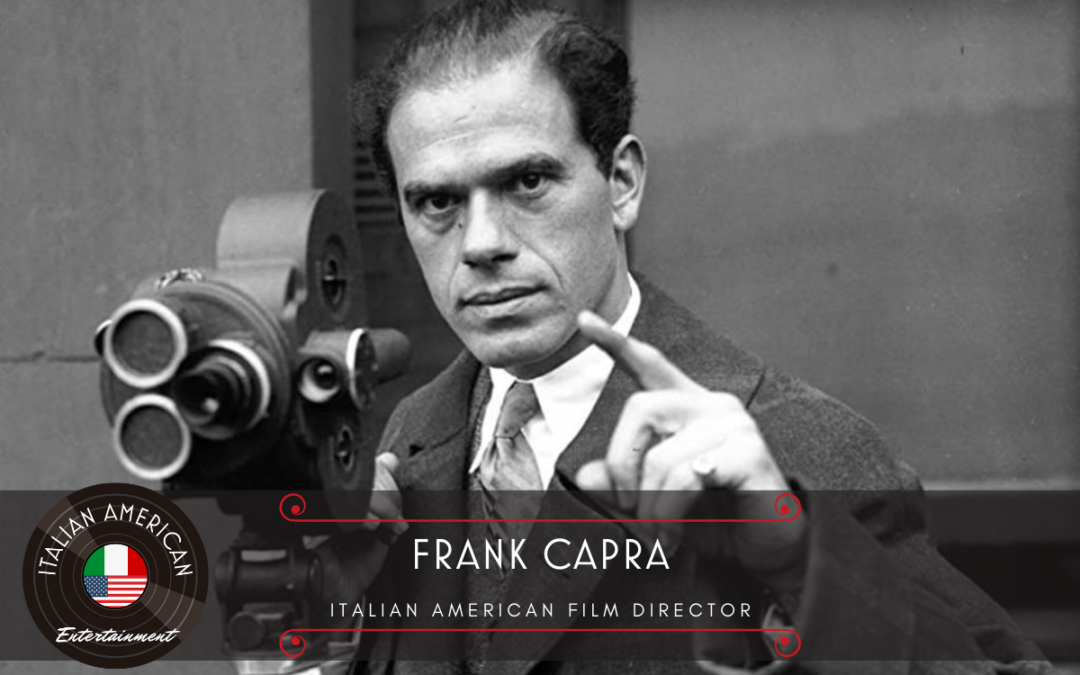One of my favorite movies of the Golden Age of Hollywood is Arsenic and Old Lace. When looking for Italian American film directors, I came across the name Frank Capra. While I’d heard this name before, I never realized all the movies he directed, including Arsenic and Old Lace. His life story is very interesting, and definitely lives the definition of the American Dream.
Francesco Rosario Capra (Frank Capra), was born in Palermo, Sicily, on May 18, 1897, the youngest of Salvatore Capra and Rosaria Nicolosi’s seven children. When Frank was six years old his family left Sicily for Los Angeles, California. Capra fought to go to college against his parents’ wishes, working several jobs to pay his way through the California Institute of Technology. After graduating and serving in the army, he had trouble finding a decent job. His relatives on the other hand, none of whom had college degrees, were all employed. While in San Francisco, Capra, with twelve cents to his name, answered a newspaper advertisement placed by an actor who was looking for a director to help him create film versions of his favorite poetry.
After working with multiple studios and having great success, Capra started directing his own films and soon became one of America’s most influential directors during the 1930s. He won three Academy Awards for Best Director from six nominations, along with three other Oscar wins from nine nominations in other categories. Among his leading films were It Happened One Night (1934), You Can’t Take It with You (1938), and Mr. Smith Goes to Washington (1939); Capra was nominated as Best Director and as producer for Academy Award for Best Picture on all three films, winning both awards on the first two. During World War II, Capra served in the U.S. Army Signal Corps and produced propaganda films, such as the Why We Fight series.
After World War II, Capra’s career started to decline as his later films, such as It’s a Wonderful Life (1946), performed poorly when they were first released. It wouldn’t be until decades later that It’s a Wonderful Life and other Capra films were revisited favorably by critics. Outside of directing, Capra was active in the film industry, engaging in various political and social activities. He served as President of the Academy of Motion Picture Arts and Sciences, worked alongside the Writers Guild of America, and was head of the Directors Guild of America.
Capra died in his sleep in 1991 at the age 94. Frank’s son Frank Capra Jr., was also a director and producer, and his grandson Frank Capra III is currently a film producer.
Sources: Notable Bio’s, Wiki

